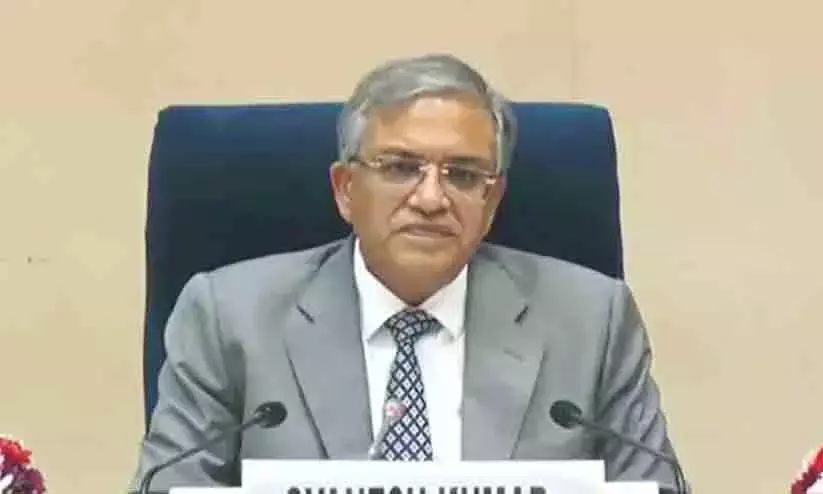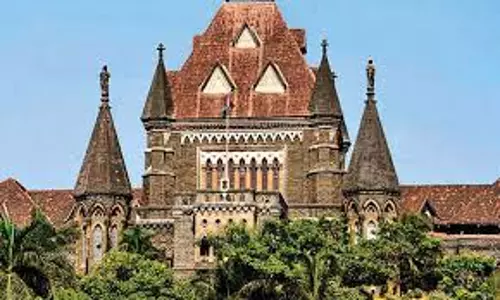
Why this ordinance?
text_fieldsProliferation of crimes through social media is causing great concerns. Several offences committed recently using cyber platforms have created increased anxieties especially among the female population. In general, private lives have also come under the threat of cyber attacks. And since the existing laws have been deemed to lack teeth to prevent them, it has been decided to introduce amendments in Kerala Police Act. The cabinet meeting of Wednesday has decided to recommend to the Governor that this amendment be issued as an ordinance, which will be in the form of adding an additional clause 118-A in the existing Police Act. The amendment lays down that anyone "who produces content, publishes or propagates it through any means of communication with an intention to threaten, insult or harm the reputation of an individual, will be punished with an imprisonment of five years or a fine of Rs 10,000 or with both." It may be pertinent to recall that a provision of Sec 118 of Kerala Police Act and Section of 66-A of IT Act, 2000 were annulled by the Supreme Court. The central government has not brought in any legislation in lieu of that. Therefore, the government feels that the police is not armed with powers to effectively stop crimes via social media absent an enabling law. It is in view of this that the decision for the amendment has been taken, explains the government's press release about the cabinet decisions.
At first glance, it will give the feeling that the move is just the right step for the government to take to meet a legitimate need. However, related trends in the functioning style of the Pinarayi Vijayan government would prompt one to view this as the latest example of its penchant for high-handed actions. In the background of the latest move are cases of the dubbing artist Bhagyalakshmi defamed by a YouTuber from Thiruvananthapuram and subsequent incidents, which are also cited in the press release. That very case merits some review. Bhagyalakshmi had lodged a complaint with the police against the most insulting comments against her. It was after the police sat on with no action whatsoever that she and her companions went to the residence of the YouTuber, Vijay P. Nair and attacked him. The next day the police arrested the accused. This illustrates the simple fact that under the existing law itself there are ample provisions to book those who attack women via social media or otherwise. And the corollary is that the police fails in using them to good effect. In a way, the political leadership miserably fails to employ the police as envisaged. But now, under the pretext of the public sentiment against the assaults on women, the LDF government has stepped in with an ordinance that has the potential to stifle criticisms, curb free expression of opinion and deny media freedom even of mainstream media. The new ordinance is not talking about cyber attacks against women alone either. Instead, it is about punishing any one "who produces content, publishes or propagates it through any means of communication with an intention to threaten, insult or harm the reputation of an individual…", be it through cyber space, print or visual media, posters or boards, all of which will attract penal action including imprisonment upto five years.
For such offences, the police can suo motu register a case, i.e. without any one's complaint. The text of the amendment is liable to varying interpretations by different actors. It undoubtedly keeps the door wide open for high-handed police action and misapplication of law. When such an amendment of far-reaching consequence is introduced, it would have befitted democratic norms to throw it open for extensive public debate and discussion in the floor of the legislature. Therefore, it is ominous that an amendment was drafted in haste and pushed through in the form of an ordinance. Also in the background is the overall inability of the CPM, the leading party of the current dispensation, to be eye to eye with free media. It may be easy under the new provisions to penalise and book those media outlets which are critical of the chief minister or ruling party leaders. Conversely, another party or coalition coming to power, can also do the same. It is the same old wine of provisions used to handle cyber crimes under Sec 66-A and Kerala Police Act 118-D - which the apex court struck them down in 2015 - that are now reincarnating in the new bottle of Sec 118-A through this ordinance. It is hoped that in the best interests of the constitution and democracy the Governor will refrain from signing off the ordinance.






















